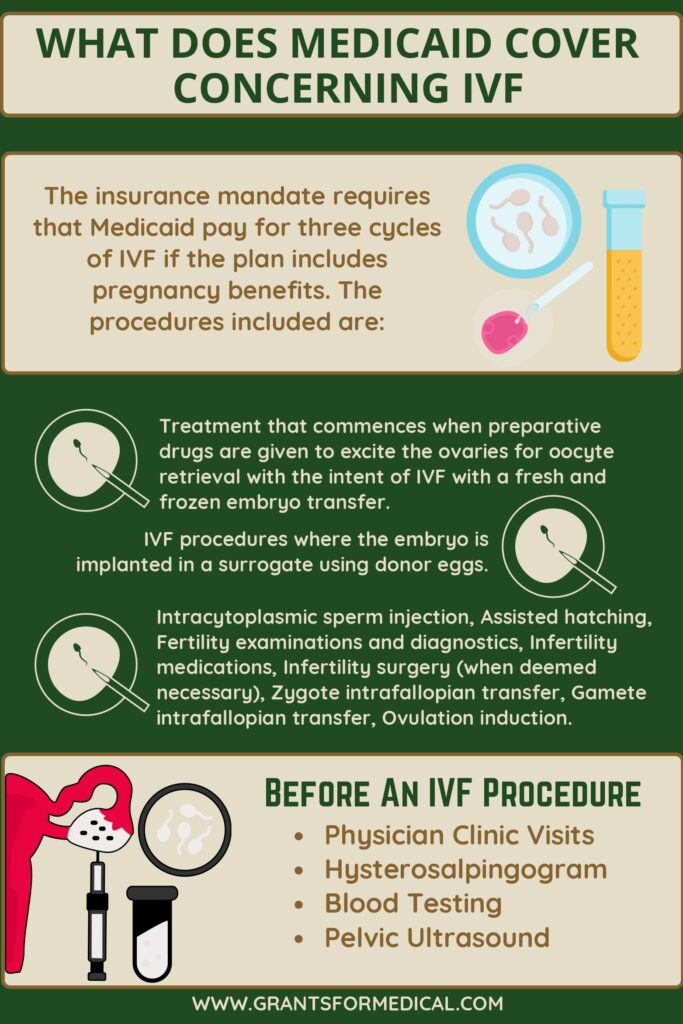Overview of IVF Costs and Insurance Coverage
If you’ve been unable to conceive, you’re not alone; 12% to 15% of couples in the US face infertility issues, with approximately 10% are considered infertile after two years of unprotected sex without a live birth. There are various reasons for infertility in both men and women, but thankfully, several treatments are available to address this issue.
Intrauterine insemination (IUI) and in vitro fertilization (IVF) are among the most common infertility treatments today, with approximately 2% of US births annually resulting from assisted reproductive technologies (ART). The demand for fertility treatments has been on the rise over the years.
Success Rates and Costs
IVF has shown considerable success in aiding conception, with success rates varying based on women’s age groups. Multiple IVF sessions are often necessary for successful insemination. breakdown of success rates based on women’s age groups according to the most recent national SART data as of 2022:
| Age of woman | < 35 | 35 - 37 | 38 - 40 | 41 - 42 | > 42 |
|---|---|---|---|---|---|
| Number of cycle starts | 45986 | 28967 | 27572 | 14147 | 9805 |
| Singleton Births | 50.8 % | 37.5 % | 24.7 % | 12.7 % | 3.9 % |
| Live Births | 54.5 % | 39.8 % | 26.1 % | 13.3 % | 4.0 % |
| (Confidence Range) | (54.0 - 54.9) | (39.3 - 40.4) | (25.6 - 26.6) | (12.7 - 13.8) | (3.6 - 4.4) |
| Singleton (percentage of live births) | 93.2 % | 94.3 % | 94.6 % | 95.4 % | 97.4 % |
| Twins (percentage of live births) | 6.6 % | 5.6 % | 5.2 % | 4.4 % | 2.6 % |
| Triplets or more (percentage of live births) | 0.2 % | 0.1 % | 0.2 % | 0.2 % | 0 % |
Insurance Coverage and Options
Insurance coverage for IVF varies widely among insurance carriers, states, and plans. While some insurance companies may cover diagnostic testing, coverage for IVF treatment itself may be limited or nonexistent.
Most individuals pay for IVF treatment out of pocket, with coverage depending on the specific insurance provider and plan. It’s crucial to research and consult with both your insurance provider and fertility clinic regarding coverage and costs.
Medicare IVF Coverage (as of 2025)
Traditional Medicare (Parts A and B) does not cover IVF treatments or fertility treatments as these are not considered medically necessary. However, coverage can vary significantly under Medicare Advantage plans (Part C), offered by private insurance companies approved by Medicare. These plans may offer additional benefits, including fertility services, but coverage is highly variable. Individuals should directly consult their Medicare Advantage plan provider for specific coverage details. Medicare Part B does not cover IVF treatments; coverage may include limited diagnostic procedures if deemed medically necessary related to underlying conditions but not the IVF treatment itself.
Medicare Parts A and B may cover certain related services but not the IVF procedure. Some Medicare Advantage plans may offer additional fertility-related benefits, but IVF coverage is rare and varies significantly by plan.
Infertility is often wrongly considered a problem exclusive to women, although men experience infertility issues as well. The diagnostic process for infertility includes the following:
- For Women:
- Post-coital screenings.
- Hormone tests.
- Thyroid tests.
- Hysterosalpingogram (X-rays of the uterus and fallopian tubes).
- Pelvic ultrasound.
- For Men:
- Genetic testing.
- Testicular biopsy.
- MRI or CAT scans.
- Semen analysis.
- Testosterone level testing.
This comprehensive approach helps in determining the most appropriate treatment plans for individuals or couples facing infertility.
Medicaid IVF Coverage

Medicaid coverage for services related to IVF, including diagnostics, varies by state and is generally limited, and individuals should consult their state’s Medicaid program for specific coverage details:
Physician Clinic Visits: Appointments with an approved fertility specialist or reproductive endocrinologist to discuss concerns.
Hysterosalpingogram: An x-ray procedure to check the fallopian tubes and uterus condition.
Blood Testing: Assessing the body’s level of FSH (follicle-stimulating hormone) to understand the quality and number of eggs.
Pelvic Ultrasound: Providing data on the uterus, endometrial lining, and ovaries during infertility testing.
Eligibility and coverage details for Medicaid vary by state, with certain criteria determining eligibility. State mandates on infertility coverage vary, with 15 states requiring some level of infertility insurance coverage as of 2025, but coverage for IVF specifically and the extent of that coverage can differ.
Strategies to Reduce Costs
If your insurance doesn’t cover IVF treatment fully, there are ways to reduce costs. Medications, often a significant expense, may be covered partially by insurance or discounted through manufacturer assistance programs or coupons. Fertility clinics can help make IVF procedures more cost-effective by offering grant programs, personalized treatment plans, and assistance in accessing financing options. Discussing financial concerns with your medical consultant can lead to solutions, ensuring that cost doesn’t hinder your journey to parenthood.
Final Considerations
While insurance coverage for IVF procedures is limited in most cases, individuals facing infertility issues should explore all available resources and options. Understanding eligibility criteria and seeking assistance from fertility clinics and insurance providers can help mitigate costs and make the journey to parenthood more attainable, regardless of the challenges posed by the current state of insurance for fertility treatments in the United States.
IVF Grants in the U.S.
See Also
Blue Cross Blue Shield IVF Coverage
Lap Band Surgery Cost Without Insurance
Does Medicaid Cover Dermatology
Does Medicare Cover Chiropractic